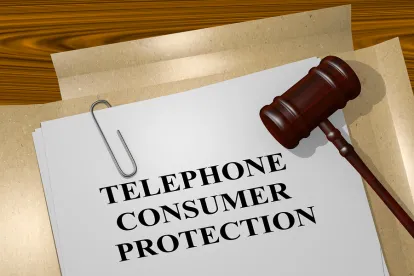The FCC is up to something.
As we’ve now thoroughly reported, the FCC is seeking public comment on the scope and architecture of the TCPA following the ACA Int’l petition. Those who listen to our podcast know that the Comission is not seeking a separate comment on the U.S .Chamber of Commerce petition addressing the functionality of an ATDS–that is subsumed within the broader Public Notice regarding the TCPA.
Just last night (or earlier today for those on the West Coast), however, the FCC also sought public comment through two tersely-worded notices respecting relatively-obscure TCPA petitions having nothing to do with ACA Int’l. That’s just the sort of unusual behavior that merits the close attention of TCPAland.com. So I decided to brew a pot of coffee and take a look. What I found was quite interesting.
The first petition is that of P2P Alliance, which asks the Commission to clarify that peer to peer text messaging is not subject to TCPA restrictions on calls to wireless phone numbers because such messaging does not use an autodialer. The notice seeking comment is here. Although the P2P petition was filed after ACA Int’l it doesn’t focus much on random or sequential number generation– and it oddly argues that P2P users have the consent of the individuals receiving the texts which, if true, would largely moot the need for the declaratory ruling it seeks–but what it does do, potentially, is set the stage for Omnibus II to address whether text messages are subject to the TCPA when they are placed with human intervention. And that’s a big deal.
Breaking it down, ACA Int’l is crucially important to industry participants making telephonic voice calls–especially those using predictive dialers. It did not, however, directly address text messages and, unsurprisingly, the Public Notice issued last week did not mention texts either. In the ensuing 10 days–seemingly the longest of my professional life– I have been repeatedly asked whether or not the sopping wet mess of jurisprudence surrounding “autodialed” text messages was tangentially impacted by ACA Int’l. As with so much else in TCPALand, the answer I have to give is a definitive “maybe.”
But the FCC may not leave us settling for “maybe” much longer. The request for comment on the humble little P2P Alliance Petition may actually set up big things for text messagers of all variety–the Petition specifically seeks clarification that text messages sent via human intervention are not subject to the TCPA. That is a perfect dovetail to the FCC’s broader Public Notice that tees up similar issues in connection with voice calls. We see what you’re doing here FCC, and we like it.
But it didn’t stop there. The FCC also sought comment on the even obscurer (is that a word?) petition of Insights Association, which sought clarification that not all calls made by businesses are telemarketing. That almost sounds like I’m being sarcastic, but seriously that is what the petition is asking for. The request for comment is here.
The Insights Association petition apparently arises out of a handful of court decisions that suggest–primarily at the pleadings stage–that marketing research calls sometimes have a “dual purpose” and require telemarketing-level consent. The Petition characterizes the reasoning of these cases as “all businesses want to make money so all calls they make are telemarketing” but I’m not really sure that’s what they say. In any event, the Petition essentially asks the FCC to wrap the knuckles of those misbehaving courts and remind everyone that research calls are not telemarketing, so there.
Interestingly, however, there’s a second ask in the Insights Association Petition, that might be where the FCC is going with their eve-of-Memorial-Day-Weekend comment request. Specifically, the Petition asks the FCC to clarify that vicarious liability principlesdo not apply to non-telemarketing calls. And while this feels like a “careful-what-you-ask-for” moment, it may actually be an opportunity for the FCC to–finally–clean up the TCPA’s disastrously unclear vicarious liability framework.
For the uninitiated, vicarious liability under the TCPA works like this: i) some courts think everyone is liable for anything anyone does on their behalf that violates the TCPA; ii) some courts think telemarketers are only liable for acts of agents but everyone else is liable for anything anyone does on their behalf that violates the TCPA; iii) most courts (thankfully) think that no one is liable for anything anyone does on their behalf that violates the TCPA unless the person sending the message is actually an agent of the person being sued; and iv) one court (that I am aware of) thinks that no one is liable under the TCPA except the actual caller because the TCPA does not allow for vicarious liability at all.
Insights Association apparently thinks that the FCC is going to apply paradigm iv) to survey calls, to which I politely chuckle. (But I have chuckled erroneously before.) But it does give the Comission the chance to clarify that paradigm iii) is the correct approach–which would be very helpful for creditors who are still sometimes faced with (bad) arguments that they are liable for all calls made by third-parties on their debt.
So is the Comission setting up Omnibus II to address text messages and vicarious liability along with ATDS issues, called party and revocation? Only time will tell. But if so we can all look back at this Thursday evening as the start of big things.
If not, I totally just drank a pot of coffee for nothing.
Comments on both petitions are due June 22, 2018. Reply comments July 9, 2018.



 />i
/>i

